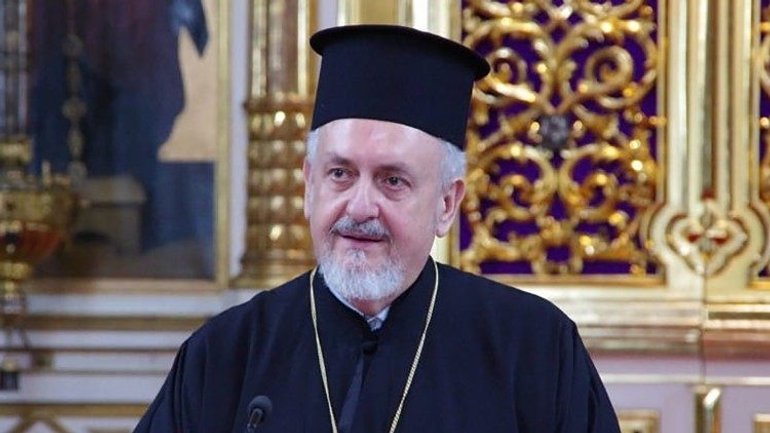A joint celebration of Easter would be a powerful sign of reconciliation, - Metropolitan Emmanuel of Chalcedony in the Vatican

This is reported by Vatican Radio.
In the context of approaching the Great Jubilee of the 1700th anniversary of the First Ecumenical Council in the history of the Church, held in Nicaea in 325, the Metropolitan of Chalcedony recalled that it was at this Council that the formula for calculating the date of Easter was set. The date of Easter is still calculated using this method, although it is based on two different calendars: Gregorian and Julian.
"The issue of joint celebration of Easter," he stressed, " is gradually becoming an ecumenical issue of the first order. Indeed, how can we bear witness to the truth of the sacrament underlying the testimony of Christianity if we remain divided on this issue? I believe that the anniversary that is on the threshold should encourage us to reflect on our liturgical practices in honor of the integrity of the body of Christ."
The bishop added that for the Orthodox Church, calendar issues remain thorny and, as history has shown, can lead to schisms.
"Celebrating Easter on the same Sunday throughout Christendom on this conciliar historical basis," he concluded, "would be a powerful message of witness and reconciliation."
The metropolitan also recalled Pope Francis' last two encyclicals Laudato si ' and Fratelli tutti, noting that he sees these two documents as "a great opportunity for dialogue and rapprochement" because Patriarch Bartholomew also pays great attention to both environmental protection and solidarity issues.
The Metropolitan of Chalcedony also shared his thoughts on the topic of the next XVI Ordinary General Assembly of the Synod of Bishops, which will be held in the Vatican in October 2023 themed: "For the Synodal Church: Communion, Participation and Mission".
He noted that he sees the choice of this topic as one of the fruits of ecumenical relations, and it is no coincidence that the latest documents of the International Joint Commission on the theological dialogue between the Catholic and Orthodox Churches speak of synodality and primacy.
Metropolitan Emmanuel quoted the document itself: "throughout the first millennium, the Church in the East and West was united in preserving the Apostolic Faith, in the continuity of the apostolic succession of bishops, in developing synodal structures that are inextricably linked with primacy, and in understanding power as a service (deaconia) of love. Although unity between East and West was sometimes broken, the bishops of East and West were aware of their belonging to the one and the same Church."









